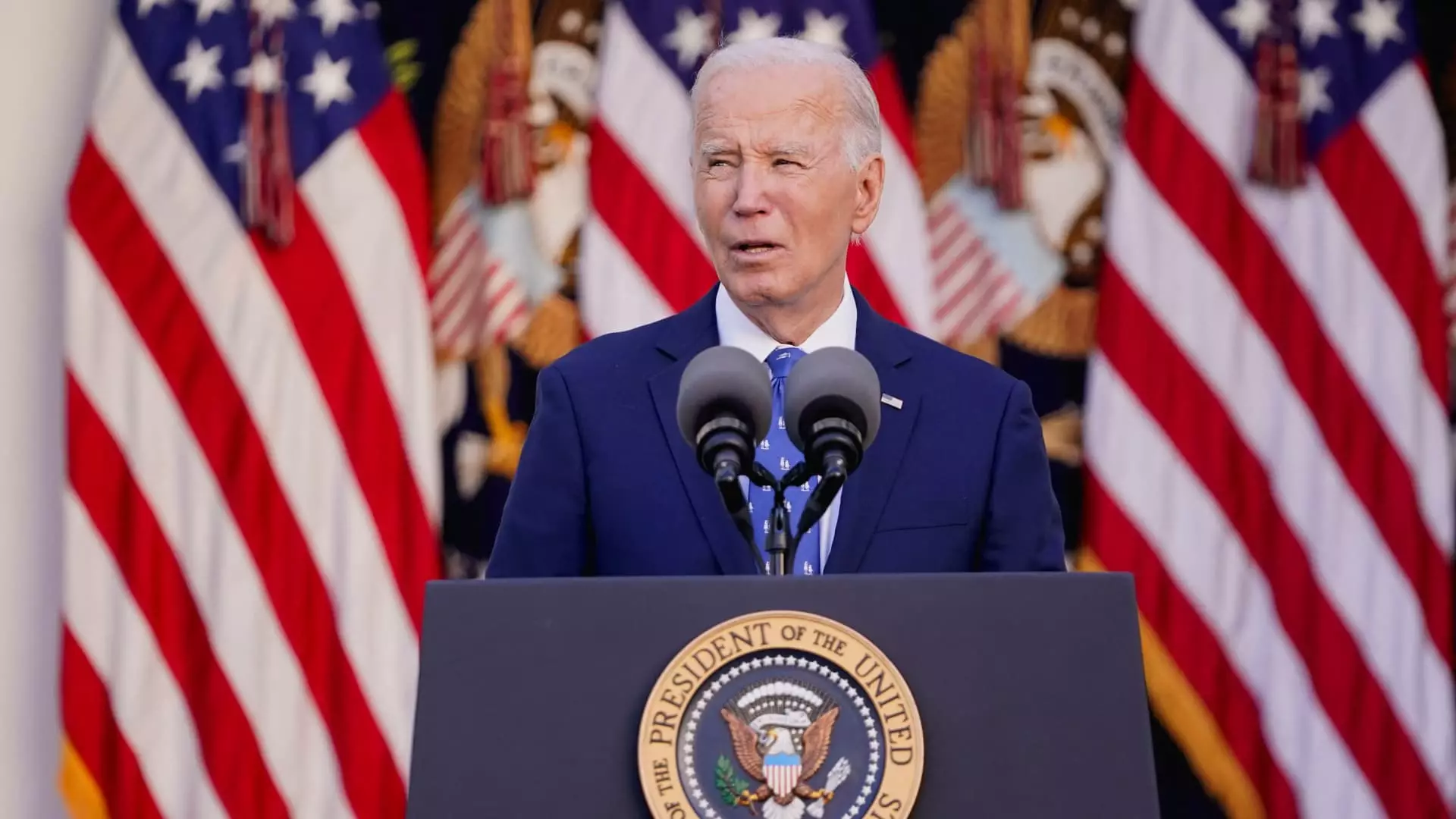On a remarkable day that may reshape the future of Syria, President Joe Biden publicly celebrated the end of Bashar al-Assad’s authoritarian rule. In a speech delivered from the Roosevelt Room of the White House, Biden framed this historical moment as one filled with both hope and trepidation. His comments reflect a broader geopolitical understanding of the complexities that come with political transitions, especially in regions fraught with conflict and instability.
Biden referred to the recent developments as a “moment of historic opportunity,” highlighting the potential for the Syrian populace, after suffering under a repressive regime for over a decade, to reconstruct their country and design a brighter future. However, he tempered this optimism with a cautionary note about the associated risks. The transition in Syria is not merely a backdrop for celebrations; it requires careful navigation amidst a landscape marred by violence, political maneuvering, and foreign interests. As the Syrian populace seeks to reclaim their autonomy, the role of external actors such as the United States becomes critical to foster stability and protect human rights.
Biden promised United States’ support for neighboring countries such as Jordan, Iraq, Lebanon, and Israel, which are directly affected by Syria’s tumultuous situation. This collaborative approach emphasizes the interconnected nature of geopolitical stability in the region; a peaceful and prosperous Syria is a potential boon for its neighbors as well. The pledge to send senior officials into the region signifies a proactive stance, augmenting diplomatic efforts to encourage responsible governance in the post-Assad era.
One of the major points raised by Biden was the looming threat posed by ISIS. He emphasized that while the power dynamics within Syria are shifting, the remnants of this extremist group may seek to regain ground in the ensuing power vacuum. Biden’s assertion that U.S. military operations will persist, demonstrated through a series of airstrikes targeting ISIS installations, underscores a continued commitment to counter-terrorism efforts in the region. The emphasis on precision strikes indicates a strategic focus aimed not only at the eradication of ISIS but at preventing the group from establishing a foothold amidst the chaos of transition.
Yet, Biden’s concerns extend beyond ISIS. He highlighted that some factions emerging from the remnants of the Assad regime have histories of terrorism and human rights violations themselves. This recognition of the complex reality of Syrian politics is vital; it indicates that substantiating supportive rhetoric with tangible actions will be essential as newly empowered groups seek legitimacy. The president’s statement of intent to evaluate these groups based on their actions rather than their proclamations strikes a cautionary tone, illustrating an awareness of the multifaceted nature of alliances in conflict situations.
Biden’s discourse went beyond military strategy; he made a commitment to assist “all Syrian groups” in forming a new, independent government. This encompasses not merely political restructuring but also addressing humanitarian concerns exacerbated by thirteen years of civil war. The prospect of humanitarian aid reflects an understanding that rebuilding a nation involves both governance and support for the people who have endured immense suffering.
In a poignant moment, Biden took a personal approach by mentioning the case of Austin Tice, an American journalist kidnapped in Syria in 2012. The administration’s commitment to secure Tice’s return exemplifies a multifaceted strategy addressing both international and personal dimensions of conflict. His assertion that the U.S. believes Tice is alive indicates diplomatic channels may be explored to resolve this ongoing abduction crisis.
With Assad’s resignation confirmed by Russian foreign authorities, the landscape of Syrian politics faces a transformative phase. Biden’s remarks that assailants like Russia, Iran, and Hezbollah are “far weaker” now than they were when he took office suggest a shift in the balance of power. This change could significantly influence the internal and external dynamics governing Syria’s future.
The current transition in Syria represents an intricate tapestry of challenges and opportunities. The U.S. response, as articulated by President Biden, should entail robust diplomatic engagement, vigilant security measures against extremist threats, and a profound commitment to humanitarian assistance. The road ahead will undoubtedly be fraught with uncertainty, yet it also presents a chance for a rejuvenated Syrian identity rooted in democracy and human rights. Balancing these factors will be crucial for achieving long-term stability in the country and the region at large.


Leave a Reply